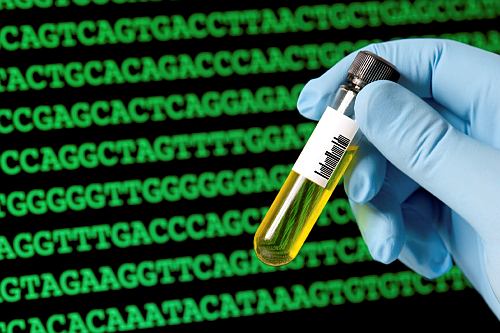2 June 2015. A new clinical trial will test 20 cancer drugs and drug combinations targeted to specific genetic mutations, regardless of cancer type. The study, known as NCI-Match is a joint project of National Cancer Institute, an agency of National Institutes of Health, and the Ecog-Acrin Cancer Research Group, and announced yesterday at the annual meeting of American Society of Clinical Oncology. Enrollment in the trial is expected to begin next month.
NCI-Match, short for Molecular Analysis for Therapy Choice, seeks to determine if tumors with specific genetic mutations can be treated with drugs developed to address those abnormalities, independent of the type of cancer affecting the individual. The intermediate-stage trial plans to pair each cancer patient enrolled with one or more of 10 drugs to begin, eventually expanding to 20 different therapies.
The trial is open to adults with solid tumors or lymphomas that advanced even if treated with standard therapies, or if no standard treatments are available. Beginning in July, NCI-Match plans to screen some 3,000 prospects with the goal of enrolling 1,000 participants, including at least one-quarter of the individuals having a rare form of cancer. Enrollment will be conducted through National Clinical Trials Network at 2,400 sites in the U.S.
Patients will first have biopsies to remove tissue from their tumors for DNA sequencing to identify genetic variations that may be encouraging growth of their tumors. The DNA analysis will use a test developed at the NCI Molecular Characterization Laboratory that hunts for 143 genes associated with cancer that can be targeted in the trial. All of testing will be done at the Acog-Acrin Biorepository and Pathology Facility at the University of Texas MD Anderson Cancer Center in Houston.
If eligible for participation, individuals will be treated with drugs matching the abnormalities the treatments are designed to address. About 35 participants will be assigned to each treatment. All of the drugs tested in the trial are either already approved or under review by FDA, and contributed by their manufacturers.
MCI-Match’s main measure of efficacy is overall response rate, determined by predefined tumor shrinkage in a specified period of time, aiming for response rates of 16 to 25 percent. The study is also measuring progression-free survival for 6 months, where the objective is 35%.
Ecog-Acrin Cancer Research Group is an organization that designs and conducts biomarker-driven cancer research with adults who have or are at risk of developing cancer. The group formed from a merger of Eastern Cooperative Oncology Group (Ecog) and the American College of Radiology Imaging Network (Acrin), and is part of National Clinical Trials Network.
Read more:
- Health Data, Analytics Firms to Boost Cancer Trial Access
- Software Companies Integrate Cancer Analytics, Patient Mgmt
- Gene Editing Harnessed to ID Cancer Targets
- Collaboration Collecting Data to ID Precise Cancer Meds
- System Personalizes Cancer Nanomedicine Treatments
* * *


 RSS - Posts
RSS - Posts
[…] Trial to Test Cancer Drugs Matched to Gene Mutations […]